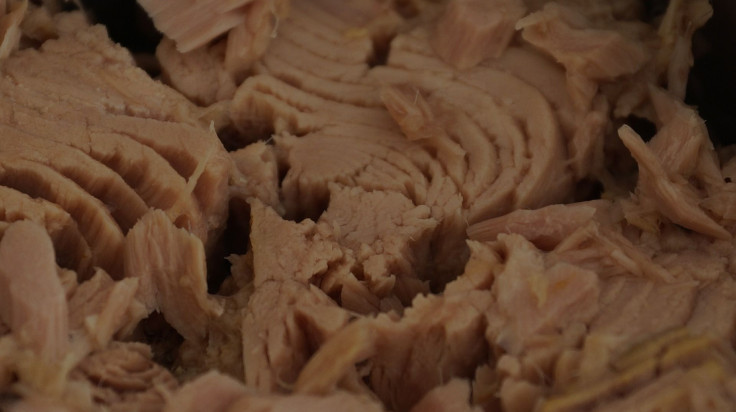What Would Happen If You Ate Too Much Tuna Fish? Mercury Poisoning Signs And Symptoms

Tuna fish is cheap, healthy, and dare I say, delicious, but tuna consumption in the United States has dropped dramatically in the past few decades due to fears of mercury poisoning. Still, there are many health benefits of this fish, so it’s best not to cut it out of your diet completely. But how much tuna fish is too much, and what would happen if you cross this threshold?
Mercury isn’t a natural part of tuna; it's a result of pollution. Mercury is emitted by industrial coal-burning factories scattered across the planet, and eventually finds its way into the oceans and other waterways, Medical News Today reported. Here, natural bacteria absorb mercury and convert it into a chemical known as methylmercury. Fish will eat methylmercury, and these fish are then consumed by even bigger fish, and so on goes the circle of life. The higher up in the food chain the fish is, the more mercury it's likely to have absorbed. When we eat fish, we also consume the mercury in their body.
Read: From Dark Leafy Greens To Canned Tuna; 9 Healthy Foods That Are Toxic If You Eat Too Much
What Happens If You Eat Too Much Tuna?
Mercury is a chemical that has no nutritional value or purpose in the human body. Although the body can dispose of mercury in low doses, in higher doses, the metal can interfere with the brain and nervous system, Medical News Today reported.
The effects of mercury poisoning are widespread, and unfortunate. The earliest signs of mercury poisoning include numbness in the fingers and toes, and poor coordination, The Huffington Post reported. In adults mercury poisoning can affect fertility, blood pressure regulation, and cause memory loss, tremors, and vision loss. Long-term mercury poisoning can impair your memory, ability to learn, cause you to act erratically, and cause birth defects to fetuses exposed in the womb, Discover Magazine reported. In worst-case scenarios, extreme mercury exposure can cause kidney problems, respiratory failure, and death.
Mercury’s damage is more serious in a young, still-developing brain, which is why children are advised to eat less tuna than adults. In addition, mercury does not affect us all equally. According to Discover Magazine, some people have a genetic mutation that allows them to expel mercury from their body rapidly, while others have a genetic mutation that causes their cells to retain mercury longer, increasing their risk of poisoning.
What’s more, the only way to reverse the effects of mercury poisoning is to stop eating foods that contain the chemical and wait for your levels to drop again.
So, How Much Is Too Much
Tuna is used to describe a wide variety of ocean fish, and there are two main types that we eat in cans: white albacore and chunk light. White albacore has up to three times more mercury than chunk light. Different sources are not in complete agreement on the “safe” amount of tuna fish. For example, according to The Washington Post, the Environmental Protection Agency (EPA) recommends that someone weighing more than 150 pounds should not eat more than a can of albacore tuna per week. The FDA is more strict with their recommendations, suggesting no more than one can every 9 days for a person weighing 150 pounds or more.
On the other hand, you can eat a little more of light tuna fish — which comes from a smaller fish and therefore contains less mercury — just under three cans a week, the EPA estimates. Of course, this is based on your overall body mass. In addition, women who are pregnant, would like to become pregnant, or are breastfeeding, as well as young children, should eat less tunafish. The Food and Drug Administration recommends that two to three 4-oz. servings per week for women, and one to two servings per week for children, starting at age two.
Considering these different recommendations, it's best to limit how much you eat, but don't rule it out completely because it has some healthly nutrients, including certain fatty acids.
See Also:
Pregnant Women Advised To Avoid All Tuna, But Don't Worry: There Are Other Fish In The Sea
Probiotic Yogurt May Protect Pregnant Women From Mercury And Arsenic



























